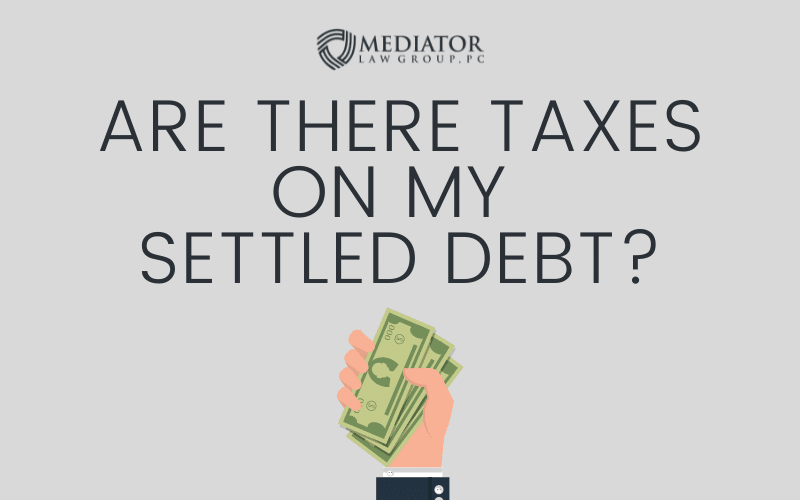Across the United States, more than 77% of American households have at least some type of debt. And by the end of 2020, that debt had risen to $14.56 trillion across 120 million households! Now that is a ton of debt! With so many Americans facing medical debt, student loans, mortgages, credit card debt, and so on, it’s only logical to think that many want out and have opted for a debt settlement company to take care of it. However, did you know that there could be taxes on some of your settled debt?
Debt Settlement: What is it?
First, let’s have a quick review of what debt settlement is. When your existing debt becomes too much to handle or even pay, or if paying the minimum would take an unthinkable number of years, many consumers opt to find relief through debt settlement. These companies work directly with the original lender and/or collection agency and negotiate all of your debt.
This gives the consumers a chance to clear away their balances at a lower cost and have a fresh start, many even becoming debt-free. Does this make you automatically free of needing to pay your debts’ taxes? Not necessarily.
Taxes: Do I really need to pay them?
So, let’s say you owed about $30,000 in credit card debt and, with the help of your trusty debt settlement company, you now only owe $10,000. Sounds great right? It is! Now, let’s talk taxes. The thing is, according to IRS, when we have a significant portion of debt forgiven, they will collect the taxes on the difference between what was owed and what was actually paid. How so?
If you are able to get a settlement that’s significantly less than your total debts owed, like the one we mentioned before, you will be taxed on any forgiven debt over $600. For example, if the difference between what you owed and what you actually paid after debt settlement is like $10,000, you will be taxed for that money that was forgiven. So, the answer is yes, you will be charged taxes on your already settled debt. But, is it really bad news?
Look at it this way. Even if you do end up paying taxes on the forgiven debt, you’ll generally still be better off than if you had to pay the full sum! Imagine having to pay $30,000 instead of the 7.75% of your forgiven debt! We’ll take that over $30,000 any day! But, did you know that in some cases, canceled or forgiven debts can be eliminated from your taxable income?
This doesn’t happen that often and that’s why they’re considered exceptions. Curious to know what these tax exceptions are? Taxpayers might be able to eliminate certain student loans (like doctors, nurses, and teachers serving in rural or low-income areas), some deductible debt, and prices reduced after purchase. When working with these exceptions, be sure to work with a certified tax professional with experience in debt settlement!
Are There Taxes On My Settled Debt? Review
Getting rid of your debt is so freeing but, don’t forget that with freedom, come great responsibilities, like paying your taxes! And if you need a helping hand with your debt and this topic, contact Mediator Law Group today.







